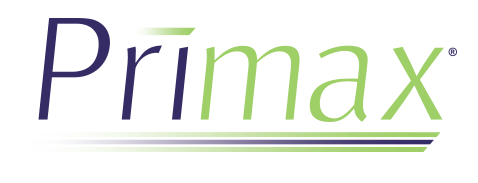By: Steve Kreitlow, Continuing Education Facilitator & Consultant, TriVerity
Credit card debt continues to rise, with delinquency rates escalating to well above pre-pandemic levels. The increasing delinquency rates mean more volume for collection departments.
The collection industry faces persistent challenges in navigating the complexities of the job. From day-to-day issues that arise to high-level hurdles, there is much to overcome to achieve a thriving collection department. It is crucial to identify, evaluate and address the various challenges within your workplace now in order to be better equipped to handle the large volume of delinquencies.
Below are five common obstacles faced by collection departments and strategies for success.
- Understaffed Collection Departments – Many organizations suffer from understaffed departments, and financial institutions’ collection departments are no exception. According to CareerExplorer, debt collections have some of the lowest employee satisfaction rates, averaging 2.2 out of 5 stars. Lack of bandwidth, budget or employee retention can contribute to understaffing issues, leaving these departments with the complex challenge of maintaining success with limited resources.
Solution: Determine when your department has the most bandwidth to take on new hires and utilize this time to hire and train new collectors. Have a structured training process to ensure new collectors get the most out of their training period. In situations where internal resources are stretched thin, consider exploring delinquency management outsourcing opportunities such as what TriVerity offers.
- Lack of Internal Processes – A department that lacks structure lacks high performance. Employees who are not provided with structured processes and a rotating check-in with the team risk falling behind or creating bad habits, which can lead to low performance and retention rates. Bad habits or poor performance may directly affect accountholder interactions, resulting in a negative reputation for your financial institution.
Solution: Establish structured, step-by-step processes to ensure your team operates the same way from start to finish with each delinquent account they handle. Schedule time to meet with staff on a consistent weekly or monthly schedule to prevent collectors from falling back into old habits and to uncover obstacles that might be hindering productivity. Ensure each employee has opportunities to discuss concerns or celebrate successes to promote a healthy work culture.
- Internal Distractions Hindering Daily Goals – Branch communications and in-house messaging from other departments can pull attention away from daily tasks, preventing teams from achieving the day-to-day objectives of accounts worked, thus decreasing performance.
Solution: Monitoring the frequency and ability of the collector to multitask will help determine if unnecessary requests are being directed to collections rather than to the appropriate departments within your organization. Streamlining communication channels can enhance daily focus and performance.
- Cross-Collaboration Between the Contact Center and Collection Department – It’s important to acknowledge the significance of maintaining a good relationship between the contact center and the collection department. A disconnect between these departments has the potential to cause workflow disruptions, leading to miscommunication or mistakes that can affect the borrower and their experience with your financial institution.
Solution: Begin cross-training efforts between contact centers and collection departments. Both face a fast-paced environment, and being on the same page is crucial, especially when working with sensitive accounts. This collaborative approach can lead to a flourishing workforce.
- Missed Training Opportunities – Whether due to lack of budget or bandwidth, many collectors miss out on a complete training experience that would set them up for success in their role. Collectors, even those with years of experience, may face burnout, create bad habits or become outdated with current regulations without the proper training.
Solution: Explore all available options within the financial institution’s parameters to provide structured training for new hires. Continue offering training opportunities for seasoned collectors to enhance their skills and improve employee retention rates. Consider implementing a training program, like TriVerity’s Training Success program, in order to offer valuable options for collectors to refresh their knowledge and reignite their passion for their profession.
Change can be hard, but each of these challenges presents an opportunity for growth, innovation and improvement. Empower and encourage front-line employees to speak up when observing problem areas so that processes can be improved. Be willing to listen to that feedback, as front-line employees see the day-to-day challenges that may be overlooked by leadership.
While change can be frightening, it can transform a broken organization into a flourishing business. Delinquencies show no sign of slowing down, so it is imperative to streamline collection efforts and make the necessary changes to create a thriving workforce.
Steve Kreitlow is the facilitator for the TriVerity Education Department. Steve was on the ground floor of The Loan Service Center start-up in 1997. Starting his career as a collector, Steve has grown with the company, wearing many hats, including managing, overseeing and training Account Service Representatives. Steve is uniquely qualified to facilitate TriVerity’s Training Success program with his broad knowledge of complicated subjects such as repossessions and bankruptcy. He has worked with over 50 different collection platforms in over 200 different collection departments. Steve’s goal is to teach collection skills that will make an immediate difference in collection department efficiencies.




